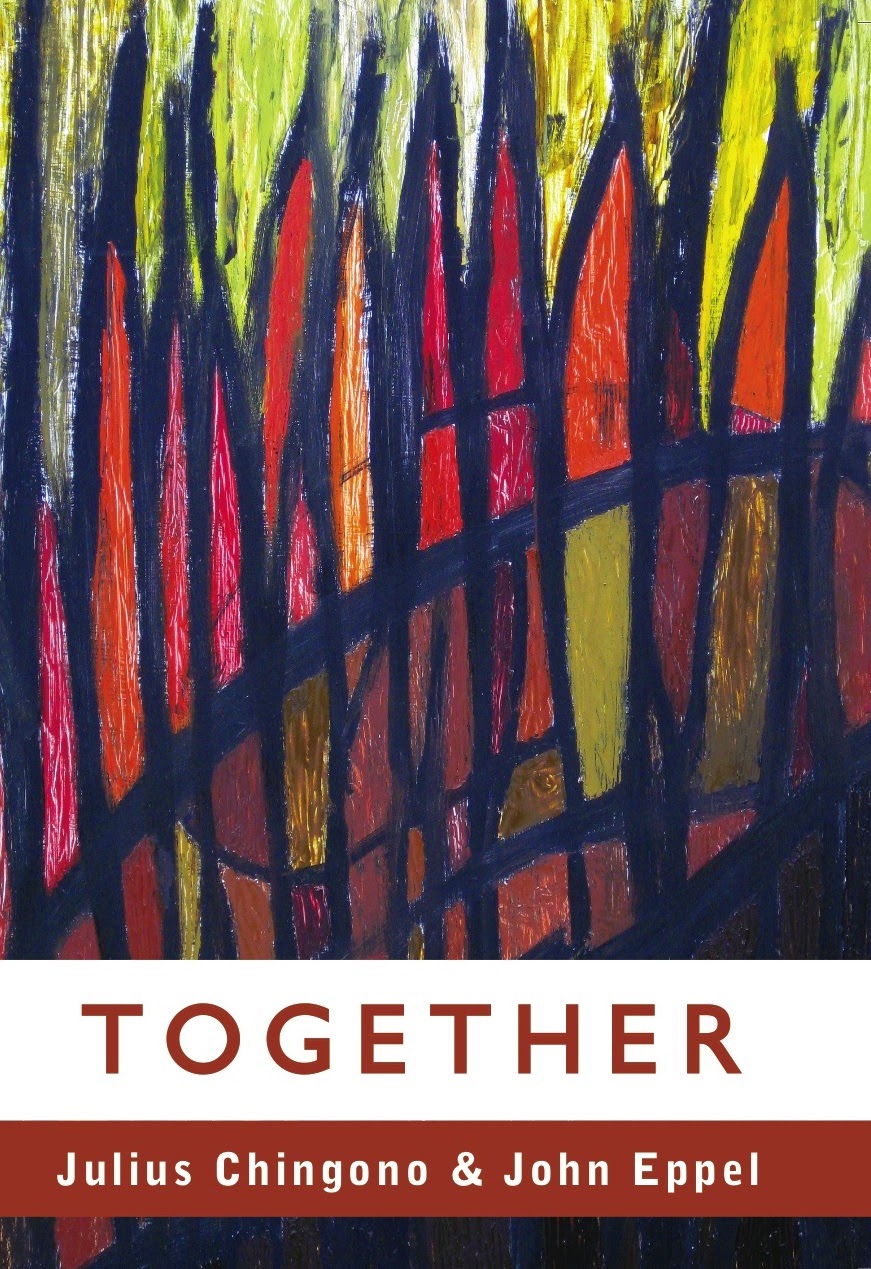Together celebrates the writing of two of Zimbabwe’s veteran authors, the late Julius Chingono and John Eppel. In Together, the Bulawayo-based publishers, ’amaBooks bridge the gulf between the black and white literary traditions. Interestingly, it is the crisis of the past decade that seems to have revealed elements of shared experience across racial lines.
Chingono brings a distinctive humour to his stories and poems about a country in the grip of an economic and political crisis. In the poem, 20-044L, he writes:
The number on my door
reads 20-044L,
but it is not the number
of my house.
The scrap metals
that make the door
include
a motor car number plate.
 He exhibits an uncommon ability to laugh at the absurd that now passes for the norm; a supposedly revolutionary party that imposes election candidates and arrests party supporters who question such practices, a lifestyle built around waiting where shortages are commonplace, the predatory behaviour of public toilet cleaners who practically rob the public, and more.
He exhibits an uncommon ability to laugh at the absurd that now passes for the norm; a supposedly revolutionary party that imposes election candidates and arrests party supporters who question such practices, a lifestyle built around waiting where shortages are commonplace, the predatory behaviour of public toilet cleaners who practically rob the public, and more.
In the story Shonongoro, a harmless-looking public toilet cleaner gently taps into traditional Shona speech registers between in-laws to trap a patron to part with a few dollars! In Chingono’s world, there are few saints!
Read Murehwa, the story of an old bachelor who dies without ever engaging a lover and discover Chingono’s hilarious narration of the sahwira’s prescription to “fix” the dead man’s stubbornly erect male member.
John Eppel is master of satire. His short stories and poems are more overtly political, displaying a certain anger at the turn of events. In Broke-Buttock Blues, Eppel reminds the reader of the violence of past elections:
They burned all our mealies, our chickens, our dog,
they burned all our mealies, our chickens, our dog;
my uncle, they hit him to death with a log.
 |
| Photograph courtesy of Tswarelo Mothobi |
Who Will Guard the Guards? is an hilarious take on what happens when law enforcers become victims of an economic downturn. A benevolent Zimbabwean offers free accommodation to a desperate young policeman, who later apparently steals the good Samaritan’s belongings. When the victim visits the police station, he finds the senior police officer investigating the crime actually wearing his stolen belt!
All is not gloom and doom for Eppel. He pays homage to ordinary Zimbabwean women of WOZA in Song for WOZA who stand up to tyranny:
Women of this land arise,
fling your windows open wide,
let the breeze of change, denied,
let it take you by surprise.
Amandla omama!
Taken together, Chingono and Eppel’s writings complement each other beautifully. They challenge the reader to reflect on Zimbabwe’s lost decade. Together is a delightful – sometimes painfully delightful – read worth every penny that reflects on some of Zimbabwe’s most pressing contemporary issues in surprising ways. It also is a volume that begs one to rethink how Zimbabwean literature has been read and theorized over the years.
With thanks to Dr Joseph Chikowero, University of Wisconsin-Madison
from: http://www.hararenews.co.zw/2014/12/book-review-together/



















.jpg)




















.jpg)




























No comments:
Post a Comment